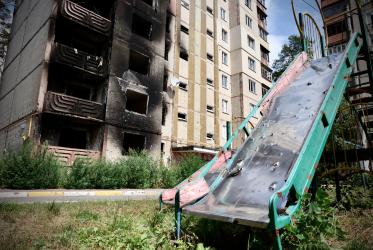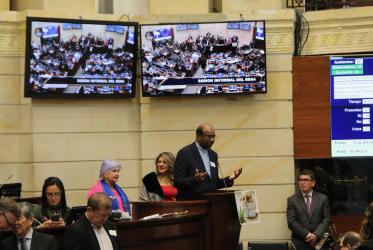While the attention of the world is focused on the war in Ukraine, other humanitarian crises – in many cases exacerbated by the effects of that conflict – lack the international attention and response they need.
Following Ethiopia’s own tragic conflict, and though humanitarian access to conflict-affected areas has improved (including thanks to the opening of the Semera-Aba’la-Mekelle humanitarian corridor), many areas in Tigray, Amhara and Afar regions remain difficult for humanitarian assistance to reach inter alia due to lack of fuel. According to a recent UNICEF humanitarian situation report an estimated 29.7 million people are in need of assistance in Ethiopia, 12.4 million of them children, and in addition to over 850,000 refugees there are 4.5 million internally displaced people in the country. Shockingly high levels of mortality among malnourished children are being reported.
The conflict resulted in widespread destruction or serious disruption of essential public services, including water and healthcare infrastructure, in all of the affected areas. For example, only 20% of the health structures in the Afar region are currently functional, according to Médecins sans Frontières.
Across northern Ethiopia children’s schooling is still seriously affected by the impact of the conflict. An estimated 1.4 million children in Tigray are entering their third year without access to education. In Amhara, an estimated 700,000 students are similarly affected, with 493 schools in North Gondar and North Wollo zones still closed, and an additional 97 schools sheltering internally displace people (IDPs) and/or being used by armed forces in North Wollo, North Gondar and Wag Hemra zones. In Afar, 245 schools in conflict-affected areas remain closed and five schools are currently sheltering IDPs, affecting the schooling of more than 53,000 children.
Moreover, Ethiopia and the Horn of Africa region is experiencing one of the most severe droughts in the last forty years following four consecutive failed rainy seasons. The prolonged drought threatens fragile livelihoods heavily reliant on livestock, and is deepening food insecurity and malnutrition. More than 8 million pastoralists and agro-pastoralists in Somali, Oromia, SNNP and South-West regions are currently affected by the drought, of which more than 7.2 million people need food assistance and 4.4 million people need water assistance.
The central committee of the World Council of Churches, meeting in Geneva, Switzerland, on 15-18 June 2022:
Expresses its solidarity and support to the WCC member churches in Ethiopia – the Ethiopian Orthodox Tewahedo Church and the Ethiopian Evangelical Church Mekane Yesus – and for their closer cooperation with each other and with the Ethiopian Catholic Church through their new Ecumenical Partnership to respond to the grave humanitarian challenges afflicting the people of Ethiopia.
Appeals to all members of the international community to ensure that humanitarian resources are provided and allocated commensurate with the scale of the emergencies in Ethiopia and all other crisis-affected countries including for people living with disabilities, and that attention is paid to the root causes of such crises, including especially promoting resolution of unresolved conflicts and fulfilling unmet commitments to climate change mitigation and adaptation.
Calls on all member churches, ecumenical partners and specialized ministries to respond to the needs of the people of Ethiopia and of other humanitarian crisis-affected countries in prayer and in action, including support for dialogue, peacebuilding, food and water.





